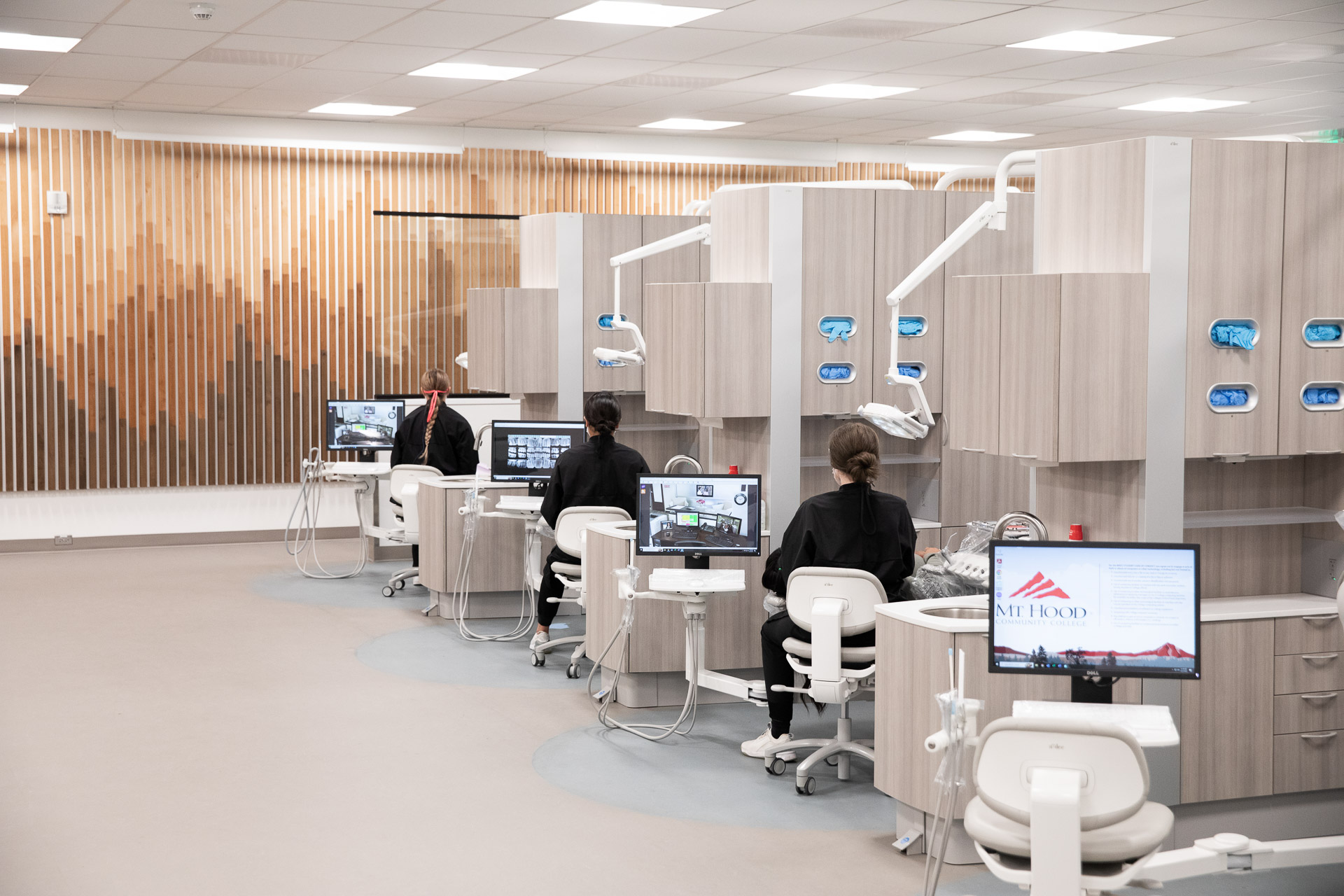
Dental Hygiene - Program Details
At Mt. Hood Community College, our dental hygiene program teaches you the dental skills you need to start your career. Your education will prepare you to sit for the national dental hygiene exam as well as the regional exam for Oregon and Washington among others. This includes learning to administer local anesthesia, nitrous oxide sedation, and providing amalgam and composite restorative care. Most graduates also hold expanded practice permits which allow you to practice independently in your career.
Total Learning
The program is seven quarters long, leading to an Associate of Applied Science (AAS) degree. Academic instruction in dental sciences is integrated with coursework in dental hygiene therapy, expanded functions, restorative dental procedures, and practicums in clinical settings to provide a total learning experience.Program Outcomes
After completing this program you'll be able to:
- Develop appropriate decision-making skills and utilize professional judgment, conduct, and ethics to provide optimum patient care.
- Effectively assess, diagnose, plan, implement, evaluate, and document current dental hygiene services.
- Promote innovative approaches to problem-solving and critical thinking that stimulate independence and responsibility.
- Work effectively with diverse populations as members of the health care team.
- Actively participate and lead in community activities and professional associations.
Courses and Curriculum
The dental hygiene program at MHCC offers in-depth instruction in dental sciences through in-class instruction and clinical experience. You will enter the program in a cohort and take specific classes with the same group throughout the program. You will be supported throughout all classes by our faculty and your classmates.
Explore the Course CurriculumYour Future in Dental Hygiene
Opportunities for dental hygienists are excellent. The personal requirements necessary to succeed as a dental hygienist begin with a strong belief in the importance of oral health, good coordination with instruments, critical thinking, and an interest in science and working with people.
Take the next step with Mt. Hood Community College
Have questions about the Dental Hygiene Program?
Read Dental Hygiene Frequently Asked Questions